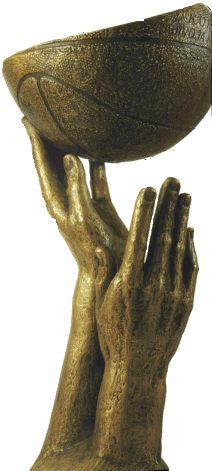
Jorge Rafael Videla was an Argentine military officer and dictator who was the 47th President of Argentina and as well as the 1st President of the National Reorganisation Process from 1976 to 1981. His rule, which was during the time of Operation Condor, was among the most infamous in Latin America during the Cold War due to its high level of human rights abuses and severe economic mismanagement.

The People's Revolutionary Army was the military branch of the communist Workers' Revolutionary Party in Argentina.

Mario Bava was an Italian filmmaker who worked variously as a director, cinematographer, special effects artist and screenwriter. His low-budget genre films, known for their distinctive visual flair and stylish technical ingenuity, feature recurring themes and imagery concerning the conflict between illusion and reality, as well as the destructive capacity of human nature. Widely regarded as a pioneer of Italian genre cinema and one of the most influential auteurs of the horror film genre, he is popularly referred to as the "Master of Italian Horror" and the "Master of the Macabre".

Italy competed at the 1976 Summer Olympics in Montreal, Quebec, Canada. 210 competitors, 183 men and 27 women, took part in 122 events in 20 sports.

The Workers' Revolutionary Party was a Marxist political party in Argentina, mainly active in the 1960s and 1970s. Currently there are different groups that claim to be a continuation of the historical PRT.

The FIBA Korać Cup was an annual basketball club competition held by FIBA between the 1971–72 and 2001–02 seasons. It was the third-tier level club competition in European basketball, after the FIBA European Champions' Cup and the FIBA Cup Winners' Cup. The last Korać Cup season was held during the 2001–02 season.

Operativo Independencia was a 1975 Argentine military operation in Tucumán Province to crush the People's Revolutionary Army (ERP), a Guevarist guerrilla group which tried to create a Vietnam-style war front in the northwestern province. It was the first large-scale military operation of the Dirty War.
Mario is the Italian, French, Croatian, Czech, Slovak, Slovene, Polish, Spanish, Portuguese, Romanian, Bulgarian, Greek, German, Dutch, Scandinavian and Nigerian English form of the Latin Roman name Marius.

Argentine Revolution was the name given by its leaders to a military coup d'état which overthrew the government of Argentina in June 1966 and began a period of military dictatorship by a junta from then until 1973.

Mario Roberto Santucho was an Argentine revolutionary and guerrilla combatant, founder of the Partido Revolucionario de los Trabajadores and leader of Argentina's largest Marxist guerrilla group, the Ejército Revolucionario del Pueblo.
Liliana Delfino was an Argentine Marxist militant. She was born in Rosario, province of Santa Fe, Argentina, on June 16, 1944, She was kidnapped on July 19, 1976 in the town of Villa Martelli, province of Buenos Aires. Along with her husband Mario Roberto Santucho, she was among the leaders of ERP, an armed Marxist organization. She was arrested and killed by the military in 1976. Her body was never found.

Maurizio Arena was an Italian film actor. He appeared in more than 70 films between 1952 and 1978.

The Trelew Massacre was a mass execution of 16 political prisoners, militants of different Peronist and leftist organizations, in Rawson prison by the military dictatorship of Argentina. The prisoners were recaptured after an escape attempt and subsequently shot down by marines led by Lieutenant Commander Luis Emilio Sosa in a simulated new attempt to escape. The marines forced the prisoners to fake a new escape, then executed them as revenge by the Revolución Argentina for the successful escape of some of their comrades during the initial prison break. The massacre took place in the early hours of 22 August 1972 in the Almirante Marcos A. Zar Airport, an Argentine Navy airbase located near the city of Trelew, Chubut in Patagonia.

Mario Scaccia was an Italian actor and author. He was a prominent figure in the Italian theatre of '900.

Seven Blood-Stained Orchids is a 1972 giallo film directed by Umberto Lenzi, who also co-wrote the screenplay.
Santucho is a surname. Notable people with the surname include:

The Pozo de Banfield is a former Buenos Aires Provincial Police station that was used as an Argentine clandestine detention center from November 1974 to October 1978, during the military dictatorship that ruled the country from 1976 to 1983. This detention center was an integral part of what came to be known as the Circuito Camps, and was one of the first to operate as such during the constitutional government of Isabel Perón, nearly 18 months before the 1976 coup d'état. With the nationwide extension of the 1975 annihilation decrees, provincial police forces were placed under command of the Army, and subsequently the Banfield Investigations Brigade became subordinated to the 3rd Mechanized Infantry Regiment of the Argentine Army.

This is a list of foreign ministers of Honduras from 1944 to the present day.
Robert William Scherrer was an FBI agent posted in Latin America in the 1970s. Named by journalist John Dinges as an "intelligence centre all by himself", he had extensive sources in the intelligence communities and military across the countries of the Southern Cone, and was one of the agents transmitting information from local intelligence sources to the United States as part of Operation Condor. He later participated in investigations relating to Condor's international killings, and is one of John Dinges' sources. He was the person who, in 1979, revealed the existence of "phase 3" of Operation Condor, the programme of international assassinations.

The Worker's Socialist Party was a Trotskyist political party in Argentina.















